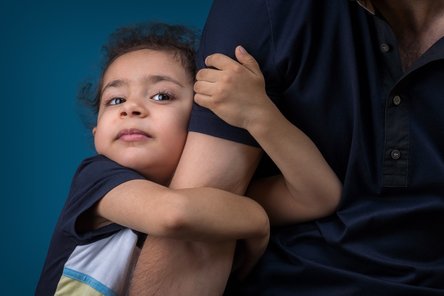The protection of children is everyone's concern
Imagine yourself as a child. Your voice would be quiet. Your well-being and your future depended completely on others. Children need special protection. To ensure their well-being and fair development opportunities, child protection exists. It includes rules and measures that strengthen children's rights - from the right to a peaceful, nurturing home to the right to physical and emotional integrity. Unfortunately, violations of child protection do not only occur in faraway countries - they often happen in our own neighborhood.
"Children have the right to grow up healthy and free of violence", states the Federal Ministry for Family Affairs, Senior Citizens, Women and Youth. Studies show that there is still a lot to be done throughout Germany in terms of child protection. In 2019, the number of child welfare risks in the Federal Republic rose to an all-time high for the second year in a row. Although more and more is becoming known about forms of violence and their serious consequences, there are still too many people in society who simply "look the other way." "Many continue to tolerate violence against children. Some even see it as unavoidable or even necessary", writes UNICEF.
From a slap in the face, to love withdrawal, to neglect: Violence has many forms
By the way, the term "violence" does not only mean physical violence. Often it is also the exercise of psychological violence, which makes so-called custody necessary. This includes disproportionate punishment, emotional coldness and withdrawal of love, frequent shouting, threatening, humiliation, contempt or even exposing a child - forms of behavior that often cause great damage to children. "Psychological abuse is among the most common forms of violence against children. Its consequences can be as devastating as those of sexualized or physical violence", UNICEF writes on its website. Whether consciously or unconsciously, intentionally or not, children experience violence in these cases - often even from those close to them and those who protect them, their parents or even educators.
Even a child who is regularly left alone at home for hours at a time is experiencing violence. This is because neglect is understood to be the failure to meet essential needs such as regular, healthy meals, education, hygiene or sufficient sleep. Physical violence also often occurs more quickly than some might think. For example, even a slap or a pat on the back is considered violence. Any violence against children is punishable by law. This of course also includes sexual acts on and with children.
Who helps children when they experience violence?
In Germany, various institutions and supervisory bodies ensure that the rights of the Child Protection Act are observed. For example, youth welfare offices serve as important contacts and mediators with a focus on the best interests of the child. In urgent dangerous situations, they may also take action against the will of the person with custody. Institutions such as "early help" primarily aim to have a preventive effect and provide free advice, networking and support to overburdened parents.
What does the LRGKF do to protect children?
The LR Global Kids Fund e.V. supports a number of aid organizations and projects that help children around the world. For example, our cooperation partner "SOS Children's Villages" takes in children affected by violence and facilitates therapy sessions so that the children can come to terms with their experiences.
How can we do our part to protect children?
Laws for child protection are the basis. However, child protection can only be effectively implemented if society - i.e. all of us - protects children. It is important not to look the other way, but to intervene yourself or to report suspected cases immediately to the existing institutions and control bodies. Show civil courage, question your own educational patterns and, if in doubt, seek help. "Opposing [violence] must finally be understood as a permanent task for our entire society. Only in this way can all children grow up safely and well", UNICEF aptly puts it.

